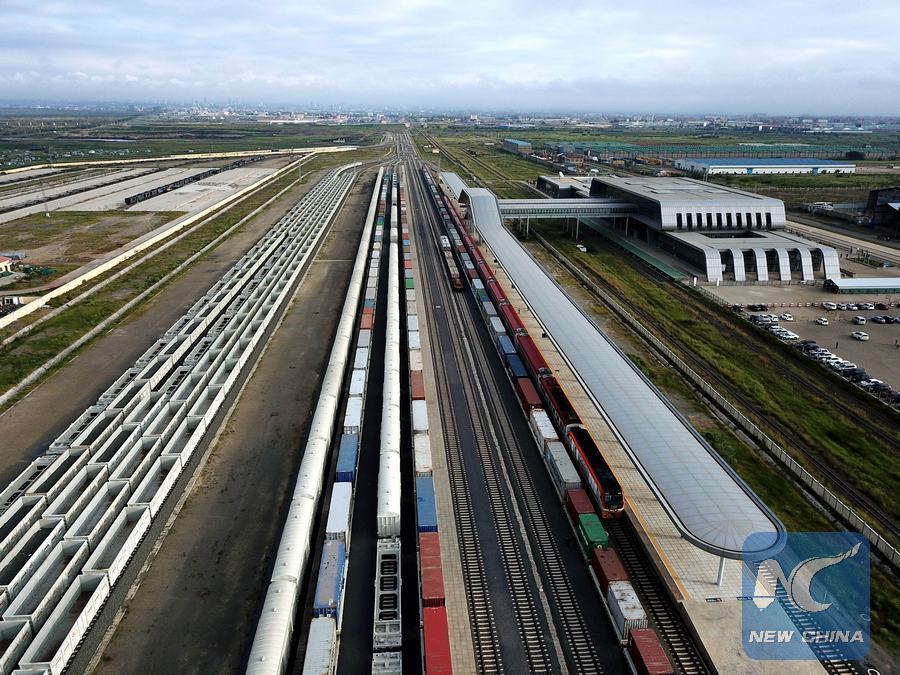Chinese companies halting Kenya’s infrastructure growth
In contrast to the faith placed in Chinese capabilities by various African countries, their development journey has not been a smooth affair. Many of them are relying on China for their growth by sourcing heavily from the country to augment their infrastructure and public services. However, the reliance has proved to be a sour experience for them. Over the past few years, Kenya has emerged as an example of this phenomenon. The lopsided trade and investment ties are gradually alarming the Kenyan policy makers about the need to review policy towards China.
Significant growth in Kenyan imports from China is attributed to expanding infrastructure in the country owing to its engagement with the Belt and Road Initiative. However, the trade balance heavily favors China reflected by the fact that Kenya’s imports from China stand at 97 percent, while its exports to China are around 3 percent only. Moreover, China has become the leading bilateral creditor to Kenya, representing about 67 percent of its external debt.
In addition to imports, the involvement of several Chinese companies in infrastructure development projects in Kenya has played a major part in enhancing the bilateral engagement. Among these, a state owned Chinese company named “M/s China Road and Bridge Corporation (CRBC)” is frequently in news for wrong reasons. The company which is engaged in several infrastructure projects in Kenya is facing backlash for its corrupt practices and discrimination against the locals. It is constructing Western Ring Road Project in Kenya which is being criticized not only for high cost but also for plans to charge exorbitant toll from the Kenyans. The CBRC is expected to earn $977 million as dividend and other incomes from the mega road. Moja Expressway Company (a subsidiary of CRBC) has been established to maintain the expressway for 27 years and collect toll fees. Besides, the amount is supposed to be paid in US dollars that may further exacerbate the inflation in the country. Moreover, the environmentalists in Kenya argue that massive cutting down of trees to implement the project could damage the local climate.
CRBC has formed another subsidiary by the name of Africa Star Railway Operation Company Limited (AFRISTAR) to work on the railway infrastructure in the region. The company developed the communications and information system for the Standard Gauge Railway of Kenyan Railway (KR) Corporation. The system was commissioned and put to use in 2017 and finally handed over to KR in 2022. However, the system is reporting snags since then. Left with no choice, KR officials have approached AFRISTAR for help, which is in turn blaming them back on grounds that Kenyan corporation failed in ensuring timely service of the system. The Chinese company is now demanding a hefty amount for undertaking maintenance of the systems for some years. Protecting itself from any liability in case of not getting additional payment, AFRISTAR has warned that any problems in operation of trains or services to passengers will be the responsibility of KR. KR is now faced with a difficult situation of choosing between safety risks and excessive financial burden.
Other Kenyan departments are also suffering due to pressure tactics employed by CRBC. The Nairobi Metropolitan Services (NMS) had awarded a contract to the company for Water, Sewer Extensions and Street Lighting in its area. The decision is apparently haunting the civic authority as CRBC has not progressed in most parts of the project. The company has undertaken some meaningful work in street lighting only and that too after receiving partial payment. Its operations have lead to unmanageable rise in compliance issues resulting in public inconvenience and even accidents. Notably, CRBC is also found involved in corrupt practices in other countries. The company had been ‘debarred’ by the World Bank in 2009 for engaging in corrupt practices in the Philippines.
Kenyan public is increasingly wary of the work ethics, morals and environmental practices of the Chinese companies working in the country. The growing resentment against CRBC in Kenya is likely to push the local government and other public authorities into a rethink on the award of infrastructure and civic contracts to Chinese companies. Since, there is a no short term solution to the increasing Chinese inroads in the country, holding the companies accountable for issues in their projects is an immediate need.
***












